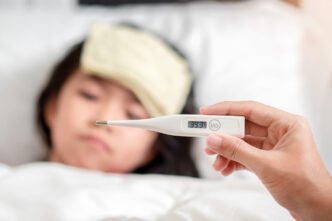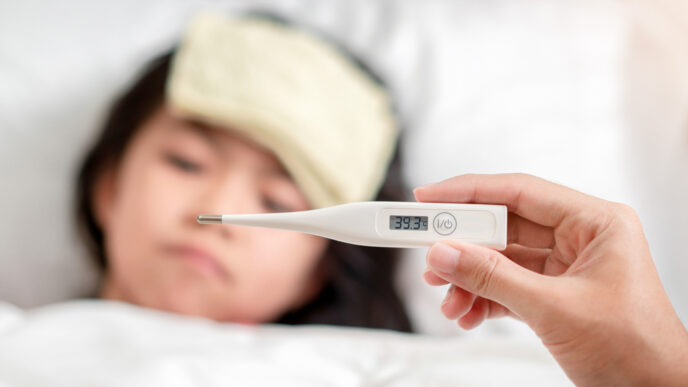Most Malaysian schools start as early as 7.30 am — some at 7.00 am — forcing adolescents to wake before dawn. The schedule is often defended for convenience: claims of better morning learning, less traffic, smoother transport, and alignment with parents’ work hours. Yet these practicalities overshadow teens’ biological and mental health needs, raising the question: do schools serve efficiency or student wellbeing?
WORDS DR AN JUBIN JOHN
 FEATURED EXPERT FEATURED EXPERTDR AN JUBIN JOHN Senior Lecturer School of Medicine Faculty of Health and Medical Sciences Taylor’s University |
Sleep is essential for adolescents’ cognitive, physical, and emotional well-being.
- Experts recommend 8-10 hours of undisturbed sleep for adolescents every night.
- Yet, many children in Malaysia experience insufficient sleep, with higher prevalence among older children, those living in urban areas, and those who are overweight or obese.
A 2025 study of nearly 300 students in Kuala Lumpur found that early school hours, late bedtimes, and excessive screen use were the key barriers to adequate, good-quality sleep.
While reducing screen time helps, the bigger question remains: Can adolescents truly fall asleep early, even if they try?
THE ADOLESCENT SLEEP-WAKE CYCLE
Adolescents’ sleep patterns differ biologically from those of adults.
- They often struggle to fall asleep early and find waking up in the morning difficult.
- Too often, this is mistaken for laziness or lack of discipline.
The reality lies in biology.
- Melatonin is a hormone secreted by a small gland in the brain known as the pineal gland.
- As darkness falls in the evening, melatonin levels in the body increases, signaling the brain to unwind and get ready for sleep.
However, during the adolescent years, this natural process undergoes changes.
- Studies show that during adolescence, the release of melatonin is delayed, leading to later sleep and wake times compared to children and adults.
- As a result, many adolescents naturally feel tired closer to 11 pm or later, making it nearly impossible to wake up refreshed before 7 am.
This biological delay in their sleep-wake cycle means many adolescents cannot realistically achieve the recommended 9 or more hours of rest — especially when combined with early school start times and heavy academic workloads.
LATER SCHOOL START TIMES: A PROVEN SOLUTION
Research consistently indicates that delaying school start times benefits adolescents’ well-being.
- A study found that even a 25-minute delay gave students approximately 30 extra minutes of sleep on school nights, reduced daytime drowsiness, improved mood, and decreased caffeine intake.
- Both the American Academy of Paediatrics (AAP) and the American Academy of Sleep Medicine (AASM) strongly advocate for middle and high schools to begin no earlier than 8.30 am, to align with adolescent biology. Such changes have been shown to boost physical and mental health, academic performance, and overall safety.
A CALL FOR TRANSFORMATION
It is time to reimagine school schedules in ways that reflect both science and compassion.
Governments, educators, parents, and communities must work together to pilot flexible solutions— whether through staggered schedules, hybrid models, or modest start-time shifts.
Even a 30-minute delay could significantly improve mental health, academic outcomes, and overall quality of life for adolescents. If we do not act now, we risk rising rates of sleep disorders and mental and emotional health challenges among adolescents — issues that could persist into adulthood.
| This article is part of our series on issues affecting our sleep as well as tips on how to get better quality sleep. |
References:
- Lang, C., Richardson, C., Micic, G., & Gradisar, M. (2022). Understanding sleep-wake behavior in late chronotype adolescents: The role of circadian phase, sleep timing, and sleep propensity. Frontiers in Psychiatry, 13, 785079. https://doi.org/10.3389/fpsyt.2022.785079
- Teh, S. C., Ang, Y. N., Yeo, G. S., Lee, S. T., Chong, K. H., Wee, B. S., & Poh, B. K. (2025). Association between dietary intake and physical activity with sleep habits among school-aged children in Kuala Lumpur, Malaysia. Discover Public Health, 22(1). https://doi.org/10.1186/s12982-025-00562-1
- Johri, K., Pillai, R., Kulkarni, A., & Balkrishnan, R. (2025). Effects of sleep deprivation on the mental health of adolescents: a systematic review. Sleep Science and Practice, 9(1). https://doi.org/10.1186/s41606-025-00127-w
- American Academy of Sleep Medicine (2017, April 14). AASM position: Delaying middle school, high school start times is beneficial to students. https://aasm.org/aasm-position-delaying-middle-school-high-school-start-times-is-beneficial-to-students/
- Mousavi, Z., & Troxel, W. M. (2023). Later school start times as a public health intervention to promote sleep health in adolescents. Current Sleep Medicine Reports, 9(3), 152–160. https://doi.org/10.1007/s40675-023-00263-8













